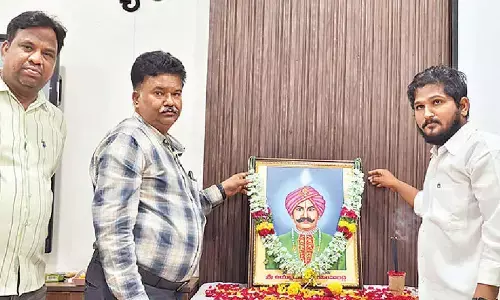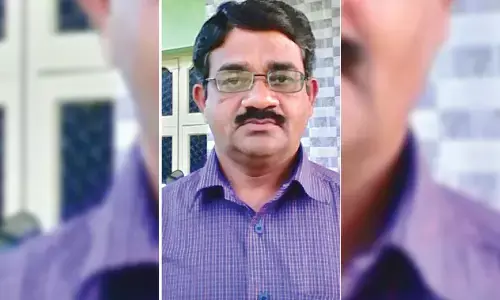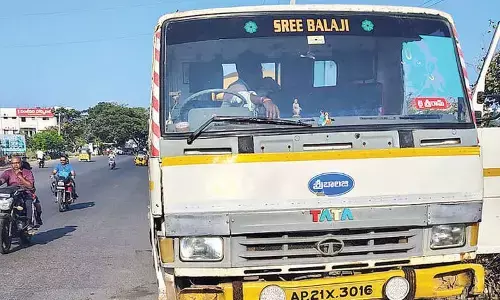Impart employment-ready education

While welfare schemes are must, the governments should focus more on education, skill development and employment generation so that the need for distribution of wealth in form of welfare schemes can come down year after year. But due to lack of this vision, the burden of welfare schemes on the exchequer is increasing. Centre and the States should sit across the table with various proposals, discuss and arrive at a consensus and have at least 80% uniform education policy. There is a need for focus on participation rates, completion rates, gender equality in education, minimum learning proficiency, internet connectivity in schools, and the availability of trained teachers
Central and state governments keep coming up with welfare schemes, and make tall promises during elections. They vie with one another in increasing the quantum of money for each scheme with the hope of attracting the votes of different communities. These schemes keep multiplying every five years.
This has been the pattern for several decades. During the last decade or so, with technological changes the delivery mechanism has undergone a sea change. The benefits are now being directly transferred into the accounts of voters. This has helped in doing away with the menace of middlemen to a certain extent.
Why I am using the word ‘certain extent’ is while traditional middlemen have been avoided, a new breed of middlemen have emerged at many places. The beneficiaries are supposed to give a cut from what they get. Till elections are over, these people bow before the voters saying you are our “Maibap” (a respectful word for parents) but once elections are over they claim “Mai Tera Baap”.
For any welfare scheme, the governments fix certain guidelines like age, family income, land holdings, ration card etc. The cuts that are demanded by the neo middlemen is to see that their followers become eligible for the welfare benefits even if they do not meet the criteria. This new kind of political corruption is growing as leaders feel that all such beneficiaries will be loyal to them and will vote for them. This myth has been burst in the 2024 elections in Andhra Pradesh where the claims of pressing buttons and transferring money to the accounts of beneficiaries did not work and the voters pressed a different button in EVMs to send them out of power. Even at the national level, the BJP efforts to get 300-plus seats on its own did not work despite claims of implementing large-scale welfare schemes.
While welfare schemes are must, the governments should focus more on education, skill development and employment generation so that the need for distribution of wealth in form of welfare schemes can come down year after year. But due to lack of this vision, the burden of welfare schemes on the exchequer is increasing.
If we look at the Unesco’s Sustainable Development Goal “SDG4 scorecard progress report on national benchmarks, released recently, it reflects India’s challenges and achievements. It says the bigger worry is the completion rate at the upper secondary level. With current rate of 51%, India lags behind many middle income countries such as Bangladesh and Indonesia which have shown faster progress. The disparity highlights the need for targeted intervention to support students through to the end of secondary education.
The report also provides a detailed analysis of India’s position relative to global benchmarks, with a focus on participation rates, completion rates, gender equality in education, minimum learning proficiency, internet connectivity in schools, and the availability of trained teachers. It further said that though the completion rate for young women in India is improving, but it is not as rapidly as needed to meet the 2025 benchmark.
This indicates that the political executive should start focusing more and more on education sector. Education is in concurrent list. Hence, both the Centre and the States should sit across the table with various proposals, discuss and arrive at a consensus and have at least 80% uniform education policy. Just because it is in the concurrent list, the states should not go on meddling with it to suit their convenience. Some minor changes can be made depending on the local conditions.
Along with higher allocation for education sector, a practical and fresh look on how to achieve global benchmarks should be worked out. Putting new colours to old buildings, providing free books, uniforms, shoes with publicity in mind more than the utility part will not help. The education system needs thorough overhauling.
There is any number of incidents where a model school with all facilities is constructed within 5-7 km distance of an existing schools with no infrastructural facilities. This would result in students in rural areas opting for the model school. This results in wastage of resources. Instead, if the existing school is upgraded, it would help in avoiding duplication. Otherwise, close this school and open a new one with all facilities.
The most important issue that needs to be given topmost priority is having well-trained teachers. There are many schools where there is an acute shortage of staff. The governments should also focus on teacher training and upgrading their skills in tune with the global developments. Instead, the practice is to keep the teachers busy in non-teaching work and use them for other purposes. This practice should stop. “Acharya Devo Bhava,” (Teacher is God). But we use them for different governmental activities.
If the parties in power forget about vote bank politics for three and a half years after coming to power and focus on reforms, it will certainly increase the percentage of literacy rate in the country and the youth can get quality education. Along with it, if the governments lay emphasis on skill development to suit the growing needs of the industry rather than come with illogical and impractical ideas like passing an act providing 100% reservation of jobs for local people, it will help in employment generation across the country.
Once employment generation increases, the percentage of BPL and those with marginal incomes would reduce and that will help the government in bringing down the quantum of welfare schemes as people would get better empowered. This will reduce the burden on the exchequer as well.
There is a lyric in Japuji Saheb “Denda De Lenda Thak Paye,” which roughly means “Giver keeps giving but the receiver gets tired.” Central and state governments keep giving either free ration or rice at Rs 2 a kg etc., and they feel that they are benefitting a large number of people.
But, there are tired beneficiaries who do not consume this rice and, on the other hand, sell it back to the ration dealer for a premium. The ration dealer sells them back to the miller and the miller happily exports them. So ultimately, the biggest beneficiary of the ration rice is the miller and the worst sufferer is the genuine taxpayer about whom the governments are not bothered and it keeps burdening them more and more.
Hence, there is a need for a fresh look by the centre and opposition parties, who should stop making a mockery of the Parliament or State Assemblies by stalling proceedings, and discuss such issues and come up with necessary laws so that India can become the third largest economy by 2029. If the INDIA bloc led by Leader of
Opposition Rahul Gandhi realises this and changes its attitude and forces the government to move in that direction, it would help the country grow faster and people in recognition of their positive role may bring them to power. But the way the opposition is behaving, whether it be at the level of Parliament or in some states like Telangana and Andhra Pradesh and a few other states, one wonders if the dark clouds would ever blow over or not.








